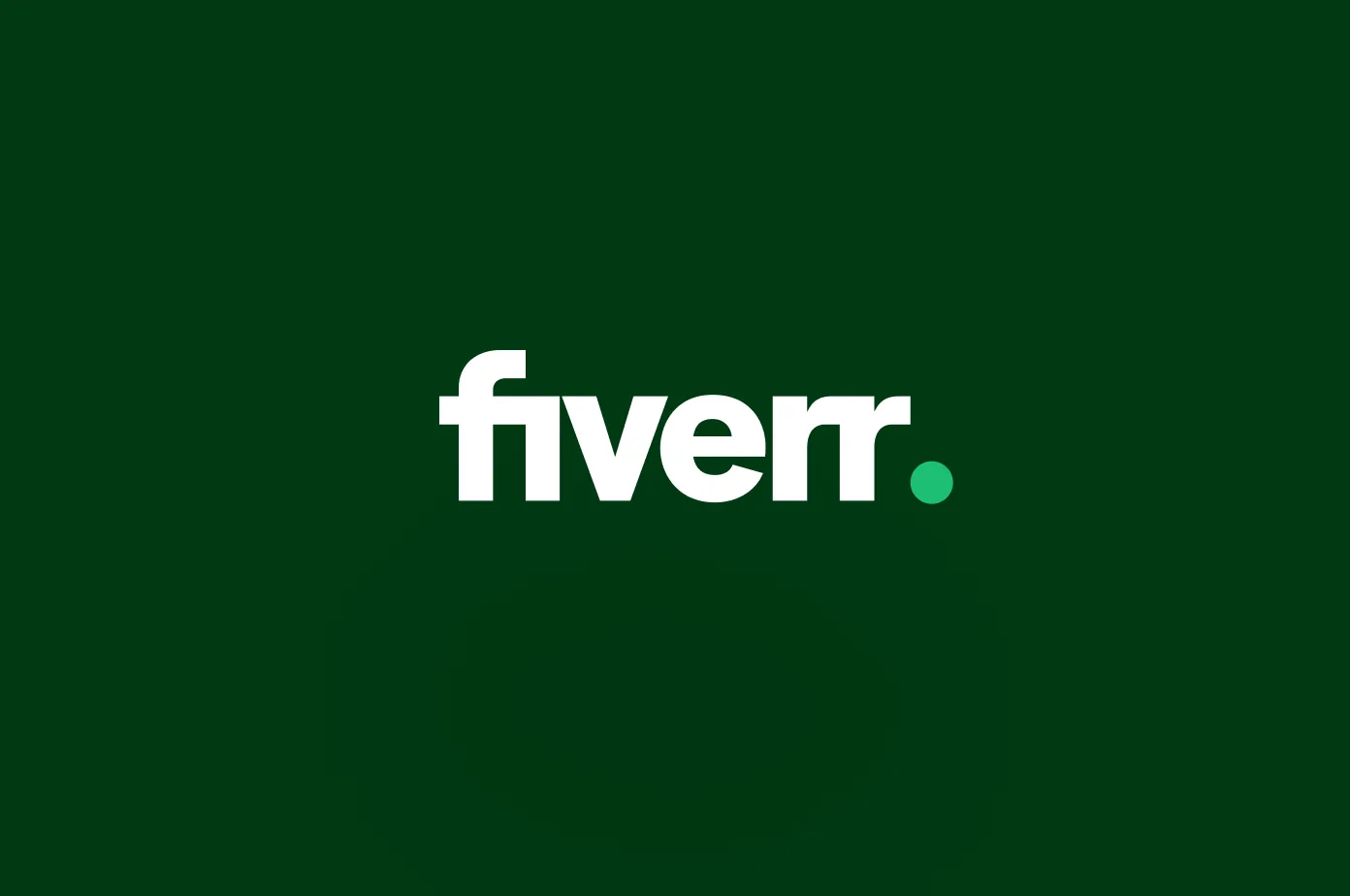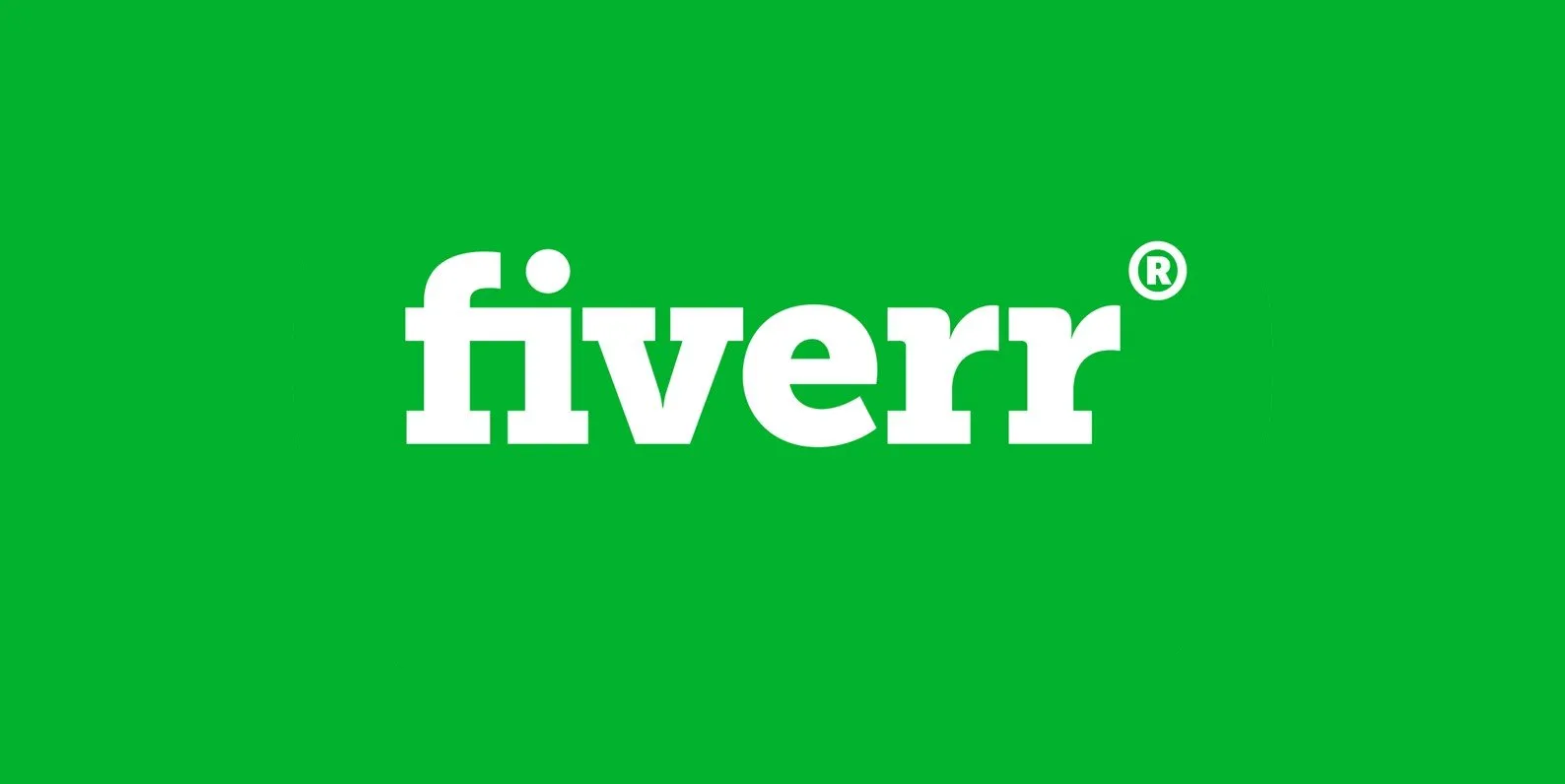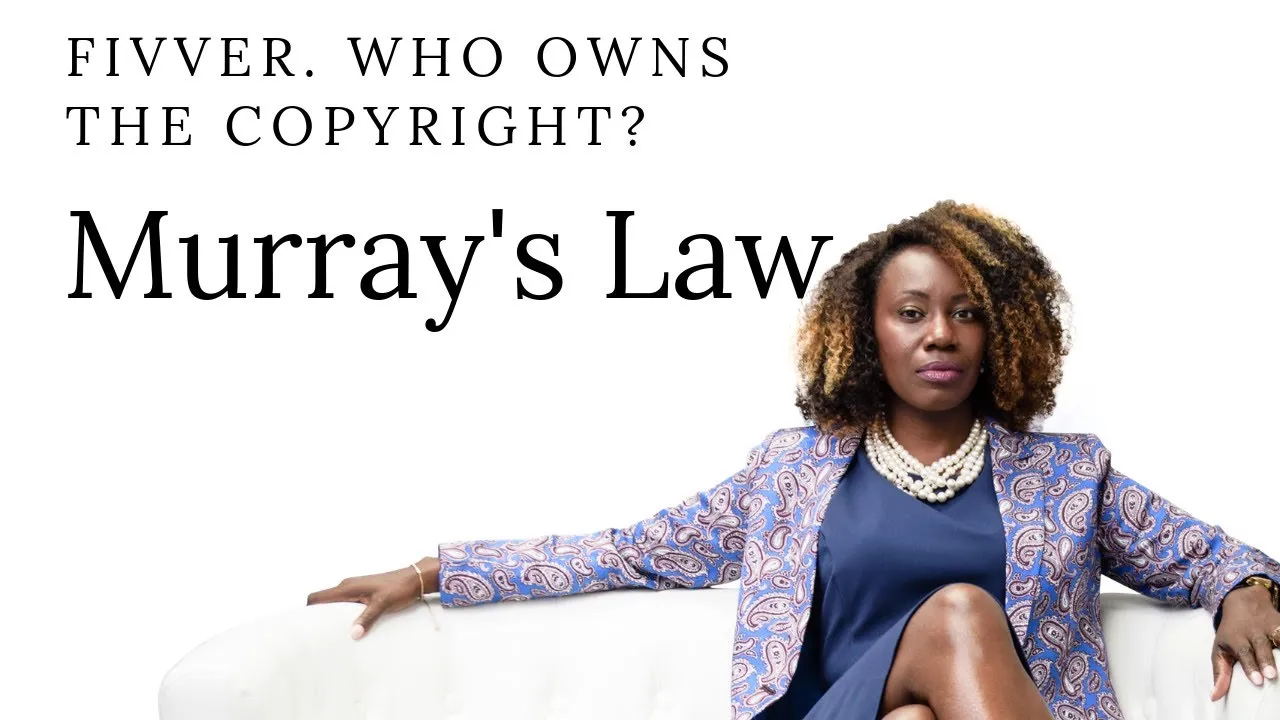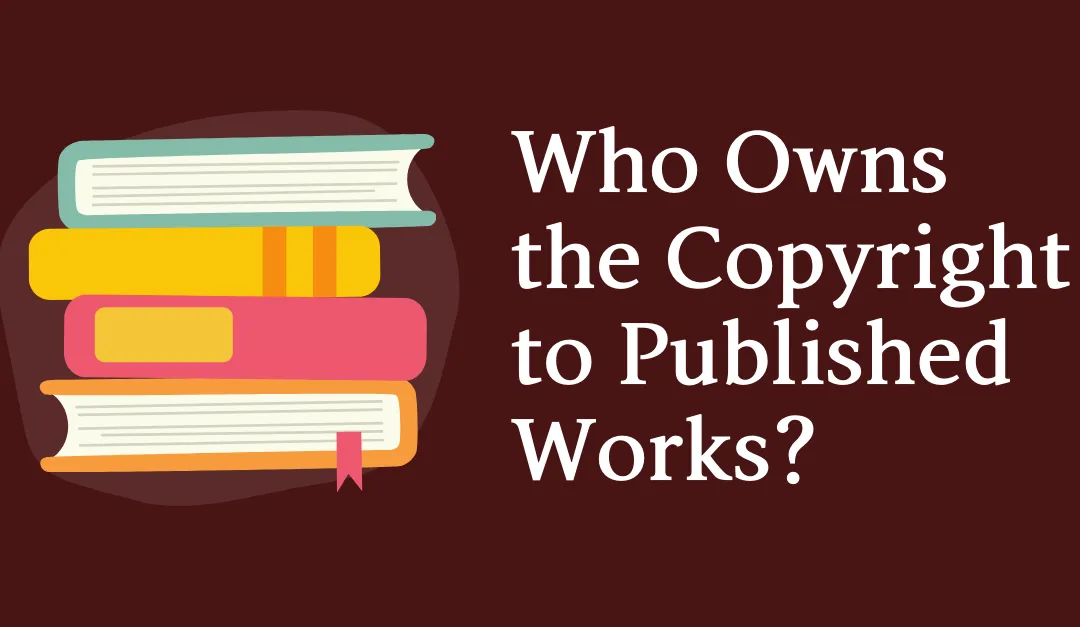When you think about Fiverr, the first thing that might come to mind is the incredible variety of services offered by freelancers from around the world. But have you ever stopped to think about copyright? Copyright ownership can get a little murky in the freelance world, especially on platforms like Fiverr. As a buyer or seller, understanding who owns the copyright to work created on Fiverr is essential for protecting your rights and making informed decisions. So, how does copyright function in this gig economy? Let's dive in!
Understanding Copyright Basics

Before we jump into the specifics of copyright on Fiverr, it’s important to understand what copyright is in the first place. Simply put, copyright is a legal right that grants the creator of original works exclusive control over how their creations are used, distributed, and reproduced. The beauty of copyright is that it applies to a wide range of creative expressions, including:
- Literary works (books, articles)
- Music and lyrics
- Visual art (paintings, photographs)
- Videos and films
- Software and web content
This means that if you've got an original piece of content, you're the one who gets to decide how it's shared or sold. However, copyright isn’t automatically granted just because you created something. In general, you own the copyright the moment you create an original work. But, when it comes to Fiverr, there are a few nuances to consider.
For example, Fiverr has specific terms and conditions that dictate how copyright works on the platform. Typically, when a seller creates a gig and a buyer purchases it, the seller retains the copyright to the work unless specified otherwise. This can lead to confusion if the buyer expects ownership of the final product. To simplify, here are some key points to keep in mind:
| Aspect | Owner |
|---|---|
| Creator of the Work | Typically the seller |
| Rights Transferred | Often must be negotiated |
| Exclusive Licenses | Can be granted with terms |
| Content Usage | Defined by the contract |
This means it's crucial for both buyers and sellers to discuss the rights associated with the work up front, ideally in writing. Understanding these basics can save everyone a lot of headaches down the line!
Also Read This: How to Review Sellers on Fiverr
The Role of Fiverr in Copyright Ownership

When you think about Fiverr, you probably imagine a bustling marketplace filled with creative talent ready to fulfill your needs. But have you ever wondered where the copyright ownership falls in this dynamic space? It’s an important question for both freelancers and buyers.
Fiverr operates as a platform where freelancers offer various services, from graphic design to writing and programming. While Fiverr provides a space for these transactions to take place, the actual copyright ownership of the work created is determined by the agreements made between the freelancer and the buyer. Here’s how it typically works:
- Freelancer Ownership: In many cases, the freelancer will retain the copyright to their work unless they explicitly transfer it to the buyer.
- Buyer Licensing: Buyers often receive a license to use the work, which can sometimes be broad but typically doesn’t mean they own the copyright.
- Custom Agreements: Fiverr encourages freelancers to specify the terms of use in their gig descriptions, allowing flexibility in how copyright is handled.
Moreover, Fiverr's terms of service state that content created through their platform is generally owned by the creator, unless otherwise agreed. This means that buyers might be getting just a license to use that content. It’s crucial for both parties to understand their rights regarding ownership, as this can impact how the work can be used, shared, or further developed.
Also Read This: Is Fiverr a Good Place to Start Voice Over?
Implications for Freelancers and Buyers

Understanding copyright ownership on Fiverr isn't just a dry legal matter—it has real implications for both freelancers and buyers who frequently interact on the platform. Let's break down how copyright affects each group.
- For Freelancers:
- Creative Control: Freelancers can determine how to use their creations as long as they retain copyright. This could include showcasing their work in portfolios or selling it elsewhere.
- Clear Expectations: By specifying ownership terms in their gig descriptions, freelancers can set clear expectations for buyers, potentially leading to more favorable transactions.
- For Buyers:
- Usage Rights: Buyers must be aware that purchasing a service on Fiverr doesn’t necessarily grant them full ownership. They often only get limited usage rights unless stated otherwise.
- Potential Legal Issues: If buyers misuse works without proper understanding and agreement, they could face legal repercussions, including copyright infringement claims.
In essence, knowledge about copyright implications helps both freelancers and buyers protect their interests. Clear communication and explicit agreements can enhance relationships, making transactions smoother and more professional for everyone involved.
Also Read This: How to Cancel Revision on Fiverr
How to Protect Your Copyright on Fiverr

When you work on Fiverr, protecting your copyright is crucial to ensure that your intellectual property remains yours. Here are some practical steps to help you safeguard your creations:
- Use Clear Agreements: Always have a written agreement with your clients that outlines the ownership and copyright terms of your work. Specify whether you’re granting full rights, or if there are any limitations.
- Watermark Your Works: If applicable, use watermarks on images or samples when showcasing your work. This deters unauthorized use and helps maintain your brand's identity.
- Keep Records: Document all your creative processes, drafts, and communications with clients. Having a trail is helpful if a dispute arises.
- Register Your Works: While copyright is automatic upon creation, registering your work with the copyright office provides legal advantages should you need to enforce your rights.
- Educate Your Clients: Sometimes, clients may not understand copyright laws. Take the time to explain how they can respect your rights and the importance of crediting your work.
By following these steps, you can better protect your copyright and minimize the risks associated with sharing your work on Fiverr. Remember, an ounce of prevention is worth a pound of cure!
Also Read This: How to Boost Your Gig on Fiverr
Common Copyright Issues on Fiverr
While Fiverr is a fantastic platform for freelancers, it’s not without its challenges, especially regarding copyright. Here are some common copyright-related issues freelancers often face:
| Issue | Description |
|---|---|
| Unauthorized Use of Work | Clients may use your work beyond what was agreed upon, such as reselling it or using it for different purposes without permission. |
| Plagiarism | Some clients might attempt to pass off your work as their own or use content copied from other sources without appropriate attribution. |
| Misunderstanding Copyright Ownership | There can be confusion among freelancers and clients about who retains copyright once a project is completed. |
| Third-Party Claims | A freelancer might unknowingly use copyrighted materials owned by someone else and face legal action from the original copyright holder. |
Being aware of these issues can help you navigate Fiverr effectively and encourage better practices in your freelance journey. Understanding copyright is not just a necessity; it's a part of being a responsible creator!
Also Read This: Incorporating Freelance Experience on Your Resume
7. Legal Considerations and Recommendations
Understanding copyright ownership on Fiverr is crucial for both buyers and sellers. It’s not just about payment for services rendered; it’s about knowing who holds the rights to the intellectual property created during a transaction.
First off, let’s clarify that, as per Fiverr’s terms, the copyright for any work delivered generally transfers to the buyer upon full payment. However, there are some legal considerations to keep in mind:
- Licensing Agreements: Sometimes, the seller might retain certain rights. This could be included in a licensing agreement, which specifies how the buyer can use the delivered work. Always read the fine print!
- Originality of Content: If the seller uses material that’s not their own (like stock images or music), they can’t give you copyright to that work. So, make sure the content is original and free of third-party rights.
- Protection of Your Work: As a buyer, consider registering the work as your own copyright once it’s transferred. This gives you legal grounds if someone else tries to claim it.
- Consult Legal Professionals: If you’re unsure about copyright laws and your rights, consult a legal professional. It’s always better to be safe than sorry!
Overall, the more informed you are about copyright ownership on Fiverr, the better you can manage your projects and protect your rights.
8. Conclusion: Navigating Copyright Ownership on Fiverr
Navigating copyright ownership on Fiverr can feel a bit like walking through a maze. With so many variables, it’s essential to understand what you’re getting into, whether you’re a buyer or a seller.
In summary:
- For Buyers: Know what rights you’re acquiring. Always ask the seller about the copyright status of the work you’re purchasing.
- For Sellers: Clearly outline your copyright stance in your gig description. Explain what rights you’re transferring and if any licensing agreements apply.
Fiverr offers an incredible platform for creative collaboration, but it also necessitates a clear understanding of intellectual property rights.
Remember, communication is key! Before finalizing any transaction, have clear discussions about copyright ownership to avoid potential disagreements down the road. Keeping these elements in mind will help you navigate the Fiverr landscape with ease and confidence, fostering fair and smooth exchanges for everyone involved.



